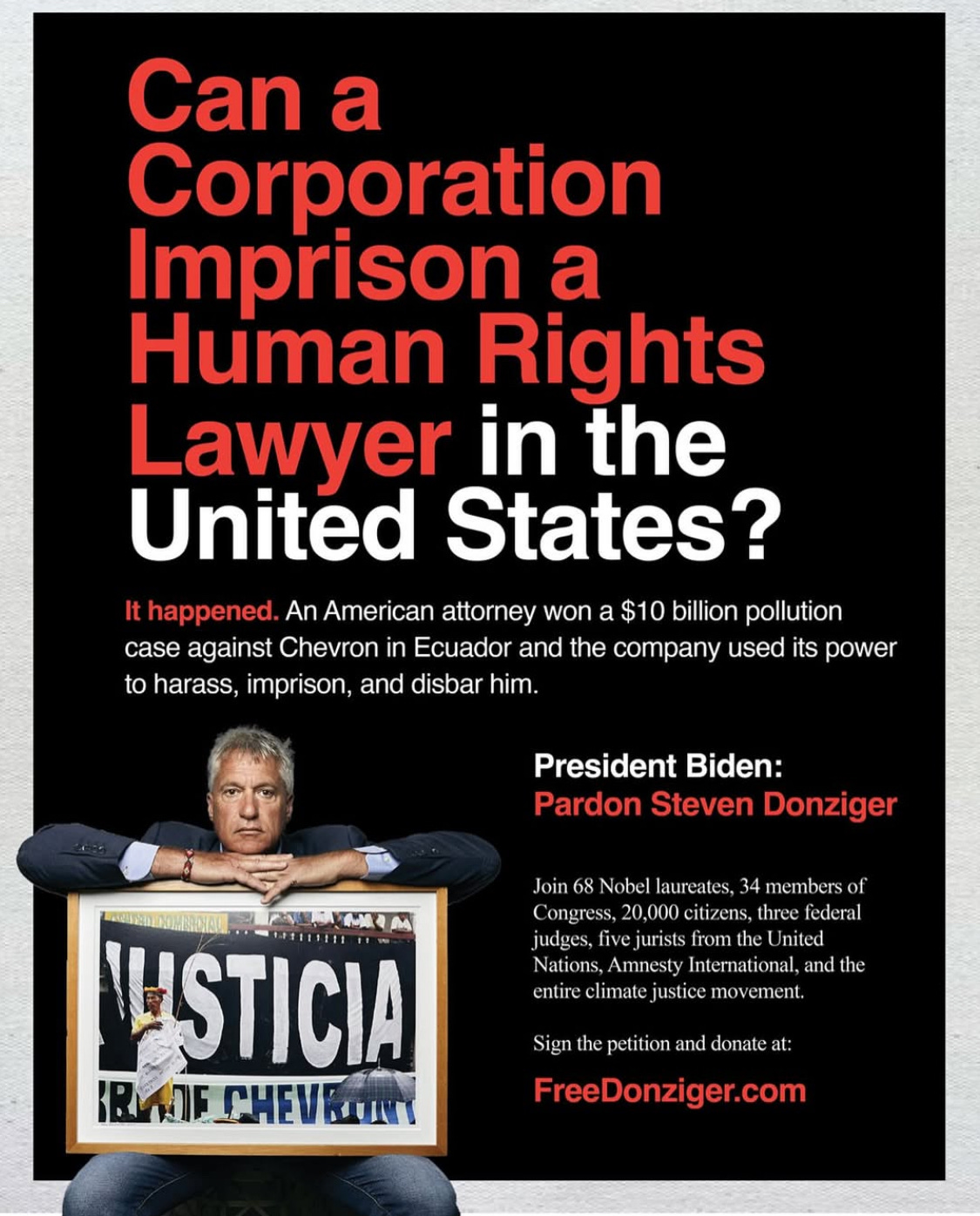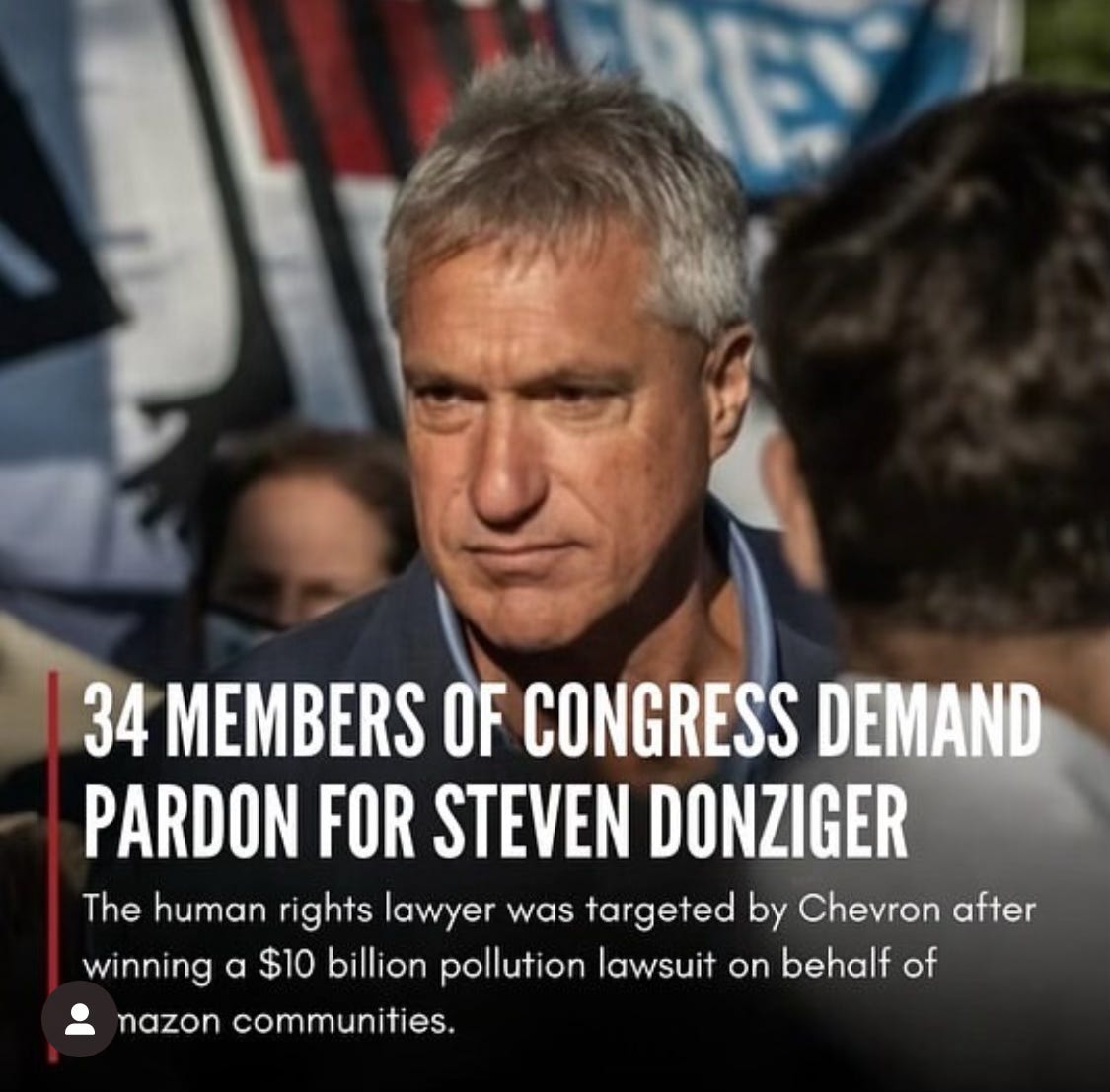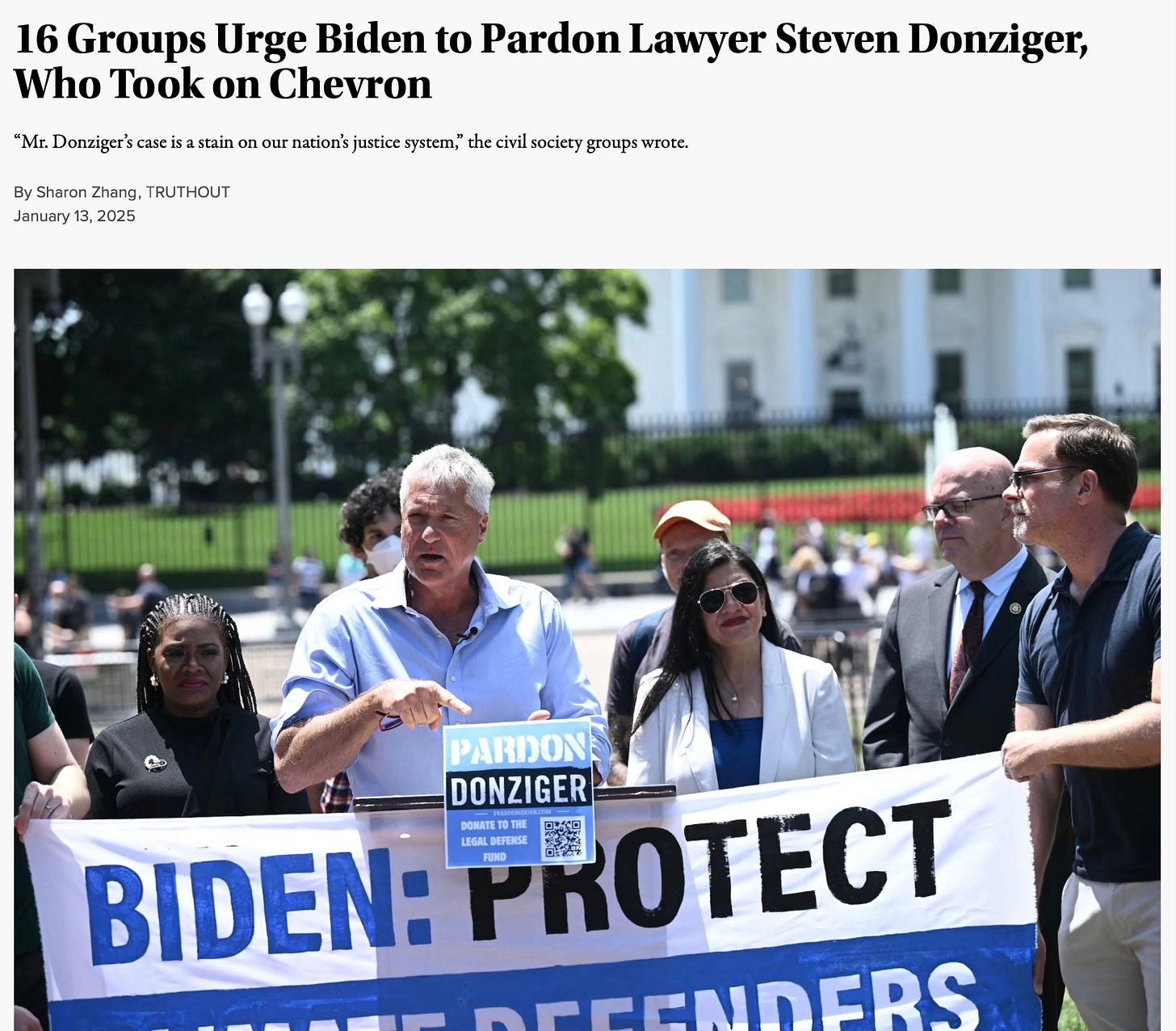Clock Ticking: President Biden Has Only 4 Days Left to Grant My Pardon Request
Here’s the bottom line: without a pardon, private corporate criminal prosecutions will be used again and again to target activists in the United States. We can't let it happen
(Before you dig in to this article, if you could purchase or upgrade to a paid subscription I would appreciate it. This is one of the few ways I can generate income after Chevron took my law license. If not, no worries at all.)
Time is running out for President Biden to pardon me after I was illegally convicted in the nation’s first corporate criminal prosecution. There are only four days left in his term.
I’m on edge as I write this although I remain cautiously optimistic about my prospects. The stakes are incredibly high for me personally and for the Amazon communities in Ecuador whom I have represented for more than three decades.
I am extremely gratified at the level of support I have received: 34 members of Congress have written the President to urge a pardon, as have 120 civil society organizations including Amnesty International. Prominent civil rights lawyers such as Nadine Stroessen, Marty Garbus, and Michael Tigar also have written the President urging a pardon. In addition, thousands of people have called the White House and sent emails to the President demanding action. Thank you to everyone who took the time to help. Because of your support, our campaign has surpassed all expectations.
I believe this should be an easy call for the President: it’s the right thing to do, on principle. That’s why people from all across the political spectrum — including two Supreme Court justices appointed by President Trump (Gorsuch and Kavanaugh) — have determined the case against me was unconstitutional. This decision should be about the rule of law, not politics.

A pardon of course would not be a panacea. The landmark $10 billion pollution judgement our team won against Chevron still needs to be enforced so the Amazon communities can finally obtain justice and remediate their ancestral lands. But a pardon is also a matter of fundamental justice for me and my family, for the Amazon communities, and for our entire society. I am urging the President to see this as an opportunity not just to correct a terrible wrong visited by an oil company upon a human rights defender, but also to send a clear message to our society that corporate criminal prosecutions will never again be tolerated in this country.

Chevron and the fossil fuel industry are likely working overtime to thwart my pardon. They want to be able to continue to use the law to intimidate and jail those who hold them accountable, as Chevron did to me. A pardon also would undermine Chevron’s 15-year campaign to use multiple public relations firms to try to taint my reputation. While I believe that campaign has failed, the corporate playbook behind it remains and could be applied to any campaigner who might be a little too effective in calling out corporate abuse. A pardon would will help undermine that playbook in a way that would protect all human rights defenders.
Of course, a pardon also implicates the rights of the tens of thousands of Amazon residents in Ecuador who rely on lawyers to help them recover their landmark legal judgement. Chevron’s corporate prosecution and my detention of nearly 1,000 days — not to mention the denial of my right to travel out of the country — has essentially cut the communities off from the one person who has been a major driving force in the legal case for decades. That must end. I must return to Ecuador for the first time in five years so the communities can create a strategy to force Chevron to clean up their ancestral lands.
The picture above reflects what might be the worst ecological calamity created by a single oil company in history. This is one of the roughly 1,000 oil waste pits gouged out of the jungle floor by Chevron and abandoned in Ecuador’s rainforest when the company left the region in 1992. Most of these pits have been there for 50 years or more. They are full of cancer-causing toxins that are piped into the rivers and streams used by Indigenous and farmer communities for their drinking water, bathing and fishing. Thousands of people have either died of cancer or face a grave risk of death due to this totally substandard and preventable system of oil extraction. Chevron built this system to maximize profits knowing it would kill.

I took more than 250 trips to Ecuador from my home in New York over two decades to try to help those harmed. When Ecuador’s Supreme Court unanimously affirmed our legal victory in 2013, Chevron had me jailed in New York on a baseless misdemeanor criminal contempt of court charge rejected by our own Department of Justice. I lost my liberty for almost three years. It was pure retaliation by Chevron that also denied the communities their right to counsel. While I’m as strong as ever, the waste pits are still there. Vulnerable people continue to get sick and die.
It’s time for a pardon, Mr. President.
To learn more about our campaign or to help, please visit our website.
-Steven




